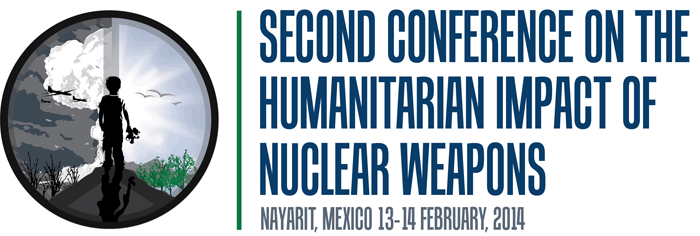The Second International Conference on the Humanitarian Impact of Nuclear Weapons, concluded today with a call from the Mexican hosts for states to launch a diplomatic process to ban nuclear weapons. Over 140 governments participated from all regions of the world.
With a large group of countries calling for a treaty to ban nuclear weapons the meeting marked a turning point in the process to outlaw and eliminate these weapons of mass destruction. Austria announced that it would host the next meeting in Vienna later this year.
“All the facts are on the table now. The impact of nuclear weapons would be catastrophic horrific and we could not respond. The risk of a detonation is significant. That is why we have heard growing support this week for a ban,” said Krista van Velzen, nuclear disarmament campaigner with Pax. As part of the International Campaign to Abolish Nuclear Weapons (ICAN) PAX-campaigners Krista van Velzen and Susi Snyder, as well as 100 ICAN campaigners from 90 different countries were present at the conference to put extra pressure on delegations to move towards a ban on nuclear weapons.
Point of no return
In his closing summary, the Chair called for the development of new international standards on nuclear weapons, including a legally binding instrument. The time has come, he noted, for a diplomatic process to reach this goal, within a specified timeframe, identifying the most appropriate forum and on the basis of a clear and substantive framework. Calling for this process to conclude by the 70th anniversary of the bombings of Hiroshima and Nagasaki, the Chair described Nayarit as ‘the point of no return’.
The meeting in Nayarit saw presentations from UN agencies, renowned academics, former military officers and the UK’s Chatham House on the likely impact of a nuclear weapon detonation on the planet’s climate, agriculture, human health and social and economic infrastructure. Yet whilst other weapons of mass destruction – chemical and biological – have already been clearly declared illegal, the same is not true for nuclear weapons. In response to the evidence presented on humanitarian impact, many states recognized the need to put in place a ban as the next step towards elimination.
“A ban on nuclear weapons is long overdue and the conferences in Oslo and here in Mexico have created an opportunity for us to put it in place,” said Ray Acheson of WILPF. “States must take this opportunity when they meet in Vienna. Civil society is already mobilizing to make that happen.
See also www.icanw.org
See also www.goodbyenuk.es
Read the report ‘The Rotterdam Blast‘




